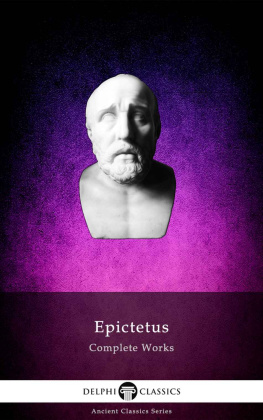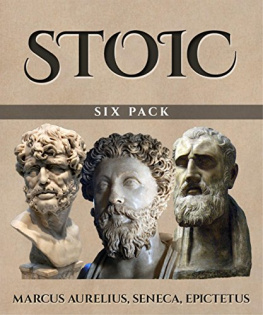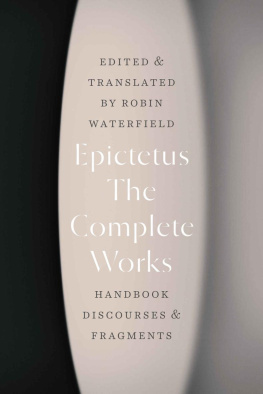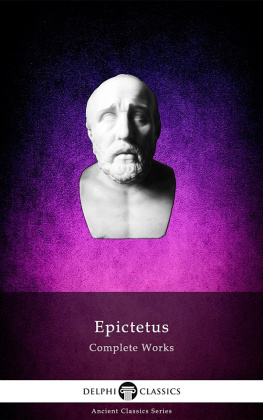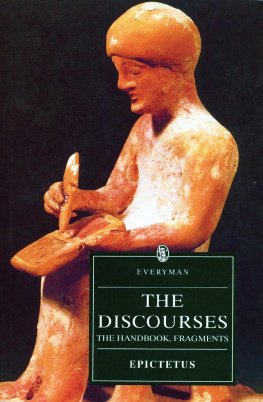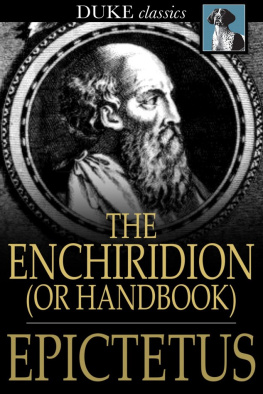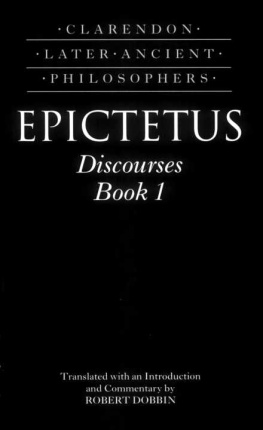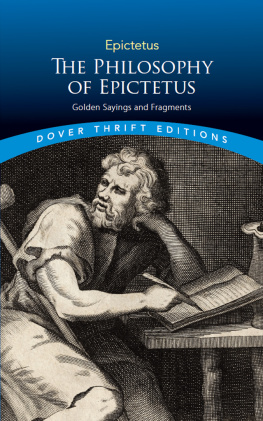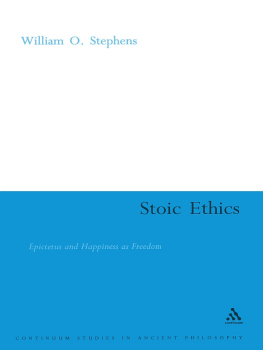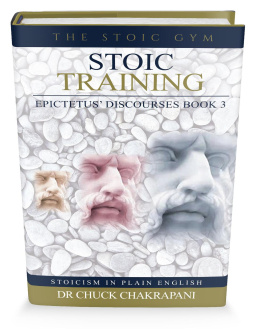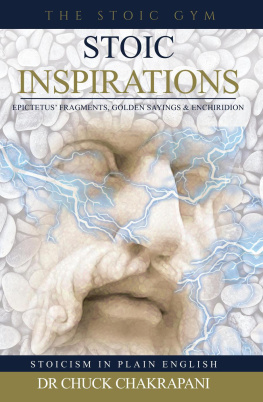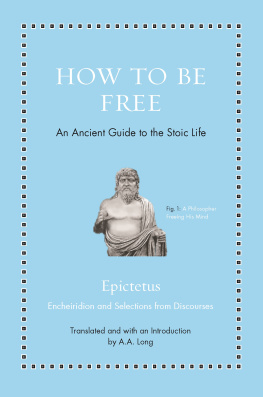
Great Clarendon Street, Oxford OX2 6DP
United Kingdom
Oxford University Press is a department of the University of Oxford.
It furthers the Universitys objective of excellence in research, scholarship,
and education by publishing worldwide. Oxford is a registered trade mark of
Oxford University Press in the UK and in certain other countries
Translation Robin Hard 2014
Editorial material Christopher Gill 2014
First published as an Oxford Worlds Classics paperback 2014
All rights reserved. No part of this publication may be reproduced, stored in a retrieval system, or transmitted, in any form or by any means, without the prior permission in writing of Oxford University Press, or as expressly permitted by law, by licence or under terms agreed with the appropriate reprographics rights organization. Enquiries concerning reproduction outside the scope of the above should be sent to the Rights Department, Oxford University Press, at the address above
You must not circulate this work in any other form and you must impose this same condition on any acquirer
Published in the United States of America by Oxford University Press
198 Madison Avenue, New York, NY 10016, United States of America
British Library Cataloguing in Publication Data
Data available
Library of Congress Control Number: 2013938925
ISBN 9780199595181
Printed in Great Britain by
Clays Ltd, St Ives plc
Links to third party websites are provided by Oxford in good faith and
for information only. Oxford disclaims any responsibility for the materials
contained in any third party website referenced in this work.
OXFORD WORLDS CLASSICS
For over 100 years Oxford Worlds Classics have brought readers closer to the worlds great literature. Now with over 700 titlesfrom the 4,000-year-old myths of Mesopotamia to the twentieth centurys greatest novelsthe series makes available lesser-known as well as celebrated writing.
The pocket-sized hardbacks of the early years contained introductions by Virginia Woolf, T. S. Eliot, Graham Greene, and other literary figures which enriched the experience of reading. Today the series is recognized for its fine scholarship and reliability in texts that span world literature, drama and poetry, religion, philosophy, and politics. Each edition includes perceptive commentary and essential background information to meet the changing needs of readers.
Refer to the to navigate through the material in this Oxford Worlds Classics ebook. Use the asterisks (*) throughout the text to access the hyperlinked Explanatory Notes.
OXFORD WORLDS CLASSICS

EPICTETUS
Discourses, Fragments, Handbook

Translated by
ROBIN HARD
With an Introduction and Notes by
CHRISTOPHER GILL

OXFORD WORLDS CLASSICS
DISCOURSES, FRAGMENTS, HANDBOOK
EPICTETUS (c.50c.135) was an influential teacher of Stoic ethical philosophy. He was born a slave in Hierapolis (modern Anatolia), and was owned for a while by Epaphroditus, a powerful freedman (ex-slave) at the court of Nero in Rome. He studied with the Stoic teacher Musonius Rufus and taught philosophy in Rome. When banished, along with other philosophers, from Rome in 89 by the emperor Domitian, he set up a school in Nicopolis in Greece on the Adriatic coast and taught there until his death. He did not marry but adopted an infant child late in life. Epictetus school was well known and attracted many students and visitors, including Hadrian (emperor 11738).
Arrian (c.86160), later an important historian, studied with Epictetus in his youth, perhaps in 1079. Arrian recorded and published Epictetus informal lectures and conversations on ethics, in eight books, of which four books and some fragments survive. These are the Discourses; Arrian also wrote a summary of main themes, the Handbook or Manual (Enchiridion). Epictetus uses these conversations to bring out key principles of Stoic ethics, and conveys these in vivid, accessible language. He aims to show that Stoic ethics can have a transforming influence on the way you live and offers a powerful pathway to human happiness. These writings made Epictetus one of the best-known Stoic teachers in antiquity; they strongly influenced the Meditations, a philosophical diary by Marcus Aurelius (emperor 16180). They have attracted the interest of many readers and thinkers in later antiquity and from the sixteenth century to the present. In the modern world, Epictetus helped to shape the development of cognitive psychotherapy and is becoming more widely used in guide-to-life writings.
ROBIN HARD has translated Apollodorus Library of Greek Mythology and Diogenes the Cynic, Sayings and Anecdotes, for Oxford Worlds Classics, and is the author of The Routledge Handbook of Greek Mythology.
CHRISTOPHER GILL is Professor of Ancient Thought at the University of Exeter. He has written extensively on ancient philosophy, especially on Hellenistic and Roman ethics and psychology.
CONTENTS
EPICTETUS Discourses form one of three compelling statements of Stoic practical ethics from the early Roman Empire; the other two are Senecas Letters and Marcus Aurelius Meditations. Epictetus work is in some ways the most important. Epictetus, unlike the other two thinkers, was a formal Stoic teacher and one of the best known of his age. The Discourses and Handbook are forceful, direct, and challenging, and are expressed in a way that is accessible to a very wide range of people. They set out the core ethical principles of Stoicism in a form designed to help people put them into practice and to use them as a basis for leading a good human life. One central message is that the basis for happiness or well-being is up to us and that we all have the capacity to move towards this state, regardless of our specific social context or individual character. A related theme is that making progress in this direction requires a combination of sustained reflection and hard work, especially in embedding our principles in our actions and relationships. Epictetus also stresses that this capacity forms an integral and inalienable part of what makes human beings distinctive in the natural universe, as well as the prime expression of what is divine within us. Epictetus Discourses have been the most widely read and influential of all Stoic writings, from antiquity onwards. They still speak eloquently to modern readers and have taken on a new significance in recent years as the basis for life-guides and cognitive psychotherapy.
Epictetus Life and the Background to the Writings
We know little about Epictetus life (c.50c.135); his lameness may have been the result of old age. It was probably while with Epaphroditus that Epictetus gained experience of the ambition, jealousy, and capriciousness of life at the imperial court that he evokes vividly in the Discourses. Epaphroditus allowed him to study philosophy, while still a slave (1.9.29), with Musonius Rufus (c.30c.101), a well-known Stoic, some of whose teachings on practical ethics have been recorded. At some stage, Epictetus was freed by Epaphroditus and set himself up as a teacher at Rome, perhaps supported by Musonius. In 89 the emperor Domitian banished all philosophers from Italy, suspecting them of opposition to his regime. Epictetus settled in Nicopolis in Epirus, in eastern Greece, a large and prosperous city, which was easy for people to visit from Italy as well as Greece. He set up a school of philosophy, which became quite famous, and was visited on one occasion by Hadrian (emperor 11738). He seems to have remained there, with short visits elsewhere, until his death. He was single, dedicated to his teaching it would seem; but we are told that late in life he adopted an infant who would otherwise have died, and took a wife or partner to look after the child.
Next page

